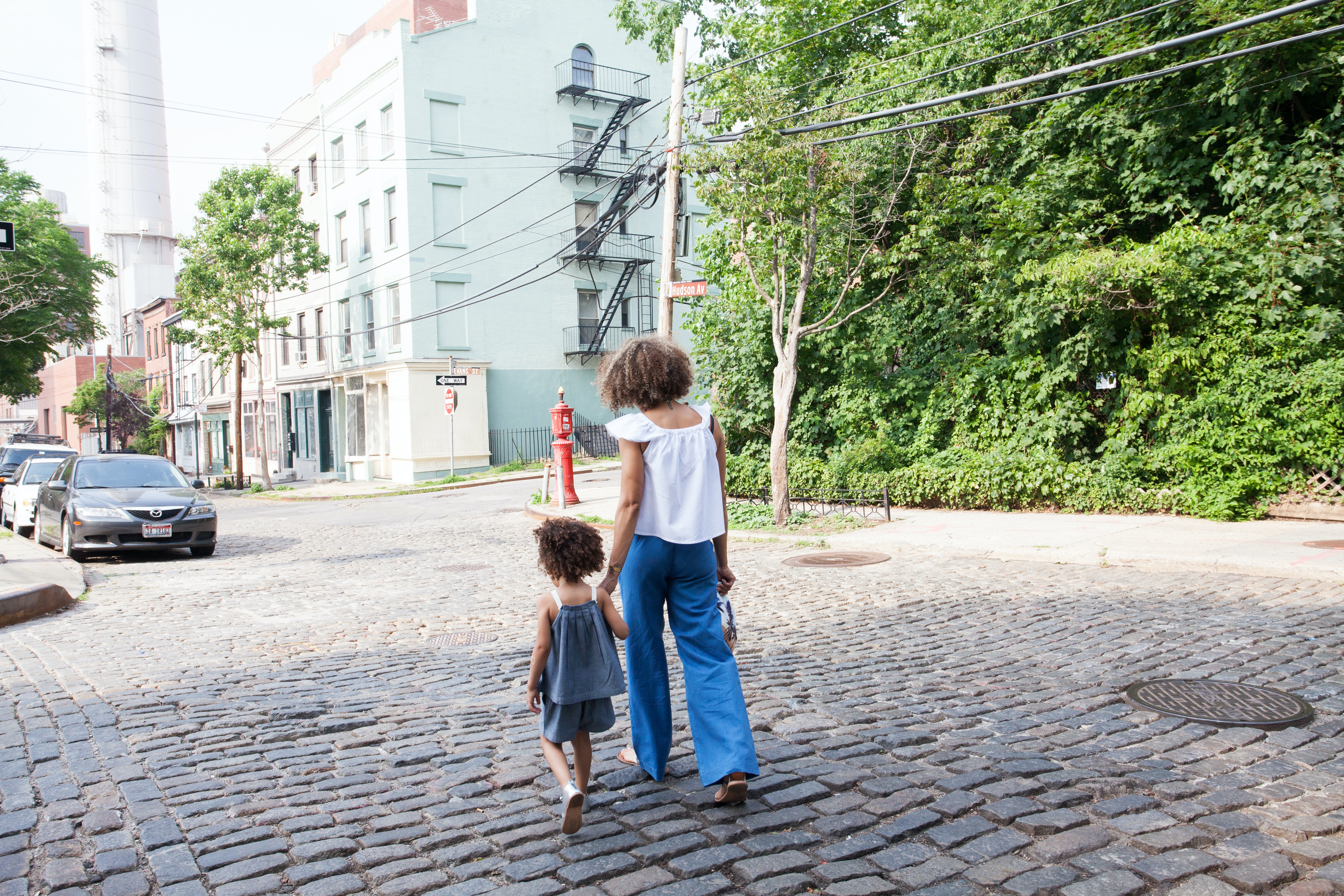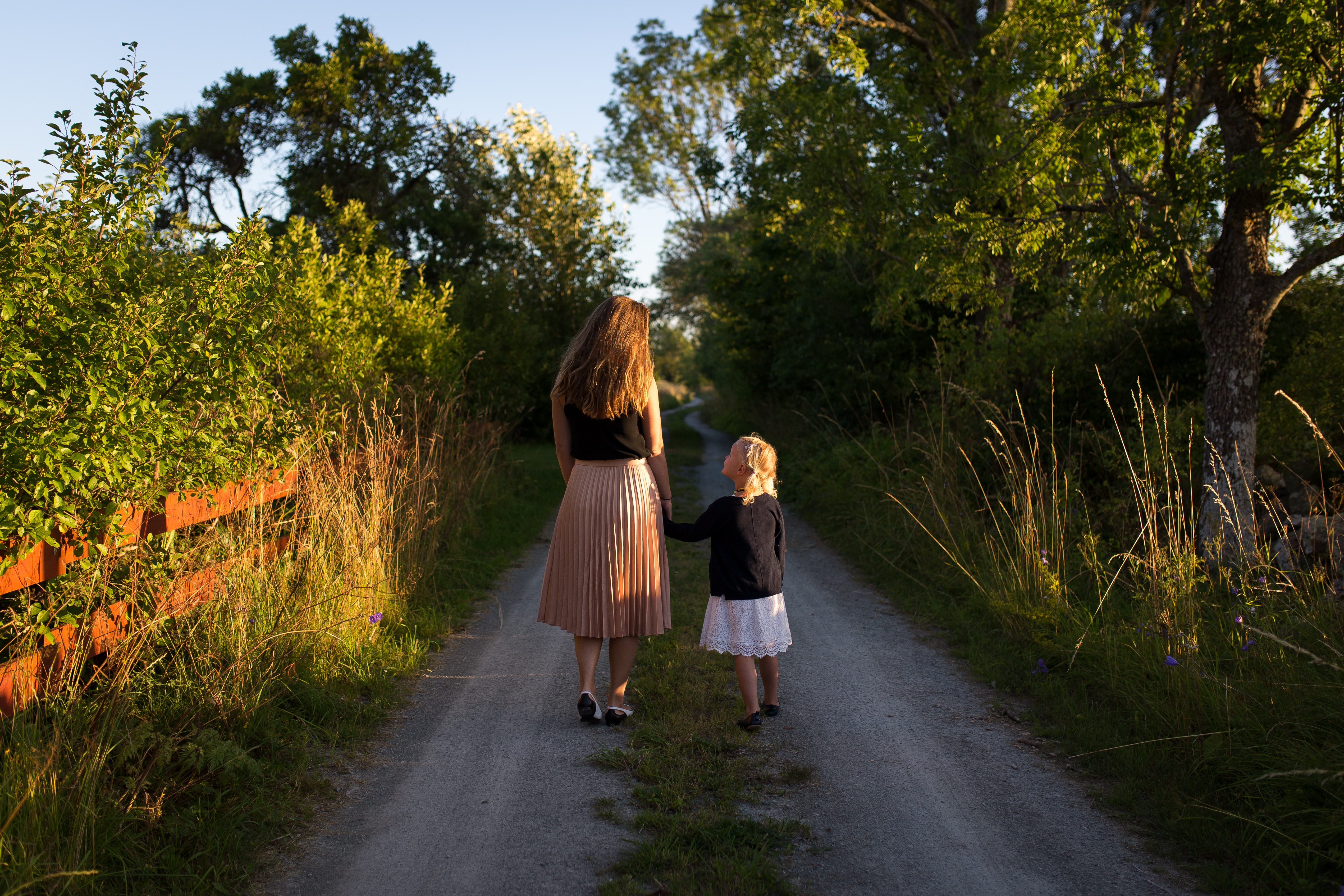When I compare my real-life experience as a parent with the online brochures, I can’t help but conclude that I fail constantly and utterly, every single day. I suspect I’m not the only one who has noticed this.
by Catherine McNiel, author of Long Days of Small Things
I came home from running errands sporting a new T-shirt that read “Cool, Calm, & Collected.” Dropping my groceries on the table, I modeled my clearance-rack find for the kids. “Isn’t it perfect?” I gushed.
They looked at me skeptically. My oldest, eleven years old, asked tentatively, “Perfect . . . like, as a joke?”
Yes, as a joke.
Later, my six-year-old asked what each word meant.
“Cool means stylish and hip,” I said.
“You are that, Mommy!” she affirmed.
“Collected means prepared, having everything together.”
“You do for sure,” she agreed.
“Calm means . . . ,” I began, but she didn’t need an explanation.
“Don’t worry, Mommy,” she said gently. “Keep trying and you’ll get better every day.”

If I could choose a superpower, I’d pass over the options of invisibility, time travel, and flying. My choice would be knowing everything and getting everything right. But the one sphere in my life that highlights how deeply I do not have this super power is the same sphere in which I want to succeed more than any other: parenting.
When I look to social media for parenting standards, everyone seems to be making a special memory, looking beautiful, and getting along just great. But at my house, someone is yelling, someone is crying, and there is ketchup on everything (no, it’s not blood, I promise). When I make dinner, nobody puts the results on Instagram. In fact, while I cook, my daughter has taken to sitting in the kitchen, drawing portraits of me grimacing with frustration.
Let that sink in for a moment.
When I compare my real-life experience as a parent with the online brochures, I can’t help but conclude that I fail constantly and utterly, every single day. I suspect I’m not the only one who has noticed this.

What we forget is that all those gorgeous pictures on the internet are taken out of context. Beauty and joy abound in life, but they come only as a package deal with pain and trouble. I’m convinced that our kids are actually better off knowing that we fail. That we’re not always right. That we get it wrong, a lot.
And I do. Most of the time, I’m the one yelling or crying or spilling ketchup (if I’m cooking, probably all three at once, hence the dramatic drawings). But that means I’m also the one coming back seeking forgiveness. The one who embodies the truth that we can be broken and still loved. That we don’t give or receive because we’re perfect, but because we’re committed.
Here’s the thing about families: we know each other all the way down. I know my children better than they know themselves and, frankly, they probably know me the same way. No façade of perfection is possible when you really understand someone—and that place of knowing is where love is grown. That fierce, life-altering need to protect, to care for, to be close, doesn’t happen because we accidently mistook our children (or our parents) as perfect. We know them. Their beauty and suffering, their wins and sins, their preciousness and brokenness—it’s all interwoven into one incredible and imperfect person who makes our world go ‘round.

And God, who made children and parents in the first place, doesn’t ask us to be perfect. He asks us to rely on Him—and He’s the one who fills the gaps we leave behind.
Guess what? Science agrees. Researchers at MIT have demonstrated that kids as young as 15 months old develop resilience not by watching near-perfect parents succeed, but by watching their faulty parents keep trying. When toddlers observe a mom or dad trying, and failing, but continuing to give an effort, it directly impacts their own ability to try something hard and not give up.
I’d love my kids to grow up with peaceful, patient, perfect parents, but most of the time, we try yet fall short. The idea that the trying is what my kids need is revolutionary. When I ask for forgiveness, they learn to be humble; when I mess up, they learn to give and extend grace.
But I have more good news too. The lie that we can and should be perfect relies on all of us working together to keep it alive. If a few of us find the courage to tell the truth—that our hearts and families are messy, that the past, present, and future can paralyze us at times—then we can overthrow these out-of-context images and come forward together to tell the truth.

Where shall we start? Maybe one of these rings true for you:
My heart is hurting.
My house is messy.
Parenting is harder than I expected.
I don’t know what to do; and I’m afraid it isn’t going to be okay.
I hate that my children have to watch me struggle so often.
Today we are all at the end of our ropes.
When my friend Emily celebrates Yom Kippur (the Day of Atonement), her community says a prayer called Viddui, and they list all their failings alphabetically. She told me:
That’s what parenting always felt like when the kids were little. At the end of every day, it felt like I had a transgression for every letter of the alphabet. And then one day, I’m telling my thirteen-year-old that I don’t think I’m all that special, and he replied, “You are special.”

Despite being a teenager and in full eye-rolling mode, he meant it. After everything, after I made all the mistakes all the time, he thinks I’m special.
This morning at breakfast, I asked my own kids what they have learned from living with parents who so often get it wrong.
“I learned that people love each other, even if they get upset,” one piped up.
“I learned that it’s okay if you mess up, because people who love you will forgive you if you’re sorry,” said another.
“I learned that it’s okay to be sad sometimes,” the third added.
You know what? That’s even better than being right all the time
So, what should we say then? Should we mess up more, that grace in our families can more abound? Of course not. But I’m grateful that the One named Love is the same One who fills in the gaps when I run out.
Thanks be to God.
 Long Days of Small Things by Catherine McNiel
Long Days of Small Things by Catherine McNiel
Dirty laundry, crayon-smeared bills, and smashed crackers . . . And there’s your Bible—buried under a pile of diapers. Bleary-eyed from lack of sleep, without a moment of peace and quiet, you wonder if the spiritual life you crave is even possible. But God sees you. He designed this parenting journey, after all. He understands the chaos of motherhood. And he joins you in everything—whether you’re scrubbing the floor, nursing a fussy newborn, or driving to soccer practice. Catherine McNiel invites you to connect with God right here, in the sacred mundane of every mothering moment.
Learn More HERE>>






